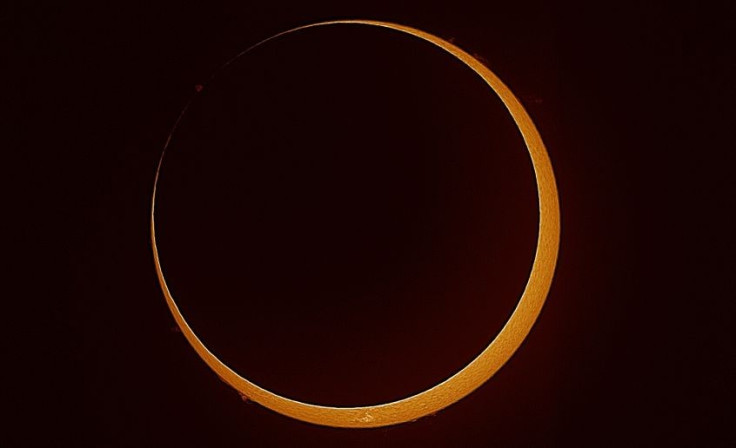Oldest recorded solar eclipse could change everything we know about the ancient Egyptians
Event took place more than 3,000 years ago and might help to explain a cryptic passage in the Bible.

Researchers have identified what could be the earliest solar eclipse ever recorded, dating it to the 30 October 1207 BCE – a finding that has major implications for our understanding of the ancient world
The discovery – made by a team from the University of Cambridge – could rewrite the dates of the ancient Egyptian pharaohs with the help of an ancient Egyptian text and the Bible – which appears to reference the event in a passage that has puzzled scholars for centuries.
The segment, in the book of Joshua, describes how he led the people of Israel into Canaan – an ancient region that is now Israel and Palestine – before praying with the words: "'Sun, stand still at Gibeon, and Moon, in the Valley of Aijalon'. And the Sun stood still, and the Moon stopped, until the nation took vengeance on their enemies."
"If these words are describing a real observation, then a major astronomical event was taking place – the question for us to figure out is what the text actually means," said Sir Colin Humphreys, co-author of the paper, from the University of Cambridge's Department of Materials Science & Metallurgy.
The study describing the findings is published in the Royal Astronomical Society journal Astronomy & Geophysics.
"Modern English translations, which follow the King James translation of 1611, usually interpret this text to mean that the sun and moon stopped moving," said Humphreys.
"But going back to the original Hebrew text, we determined that an alternative meaning could be that the sun and moon just stopped doing what they normally do: they stopped shining. In this context, the Hebrew words could be referring to a solar eclipse, when the moon passes between the Earth and the sun, and the sun appears to stop shining. This interpretation is supported by the fact that the Hebrew word translated 'stand still' has the same root as a Babylonian word used in ancient astronomical texts to describe eclipses."
Humphreys and Graeme Waddington, the fellow co-author on the study, are not the first to suggest that the text from the book of Joshua refers to an eclipse. However, previous historians had claimed that it was not possible to investigate the possibility further due to the difficult nature of the calculations that would be required.
The Egyptian text in question that could help to date the reigns of the pharaohs – a large granite block known as the Merneptah Stele – contains independent evidence that the Israelites were indeed in Canaan between 1500 and 1050 BCE. It says it was carved in the fifth year of Pharaoh Merneptah's reign and mentions a military campaign in which he defeated the people of Israel.
Previously, historians have tried to use the Stele and the book of Joshua passage to try and date the possible eclipse, but these efforts proved unsuccessful as they were only looking for total eclipses – where the disc of the sun appears to be completely covered by the moon as it passes directly between the Earth and Sun.
The oldest eclipse on record, however, is an annular eclipse – in which the moon passes directly in front of the sun, but does not cover the disc completely, leaving what looks like a 'ring of fire' – and so it was missed. Both kinds of eclipses were described by the same word in the ancient world.
The researchers calculated that the only annular eclipse that would have been visible between 1500 and 1050 BCE was on 30 October 1207 BCE.
If their calculations are correct, then the eclipse would be the oldest ever recorded that we know of. It would also enable researchers to date the reigns of Rameses the Great and his son Merneptah to within a year. Egyptologists have found it difficult to precisely date the reigns of the various pharaohs.
"Solar eclipses are often used as a fixed point to date events in the ancient world," said Humphreys.
According, to the new research, the reign of Merneptah began in 1210 or 1209 BCE, which would mean that Rameses ruled from 1276 to 1210 BCE, as the length of his reign is known from Egyptian texts.





















